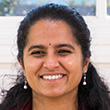About
Mission
Spirituality Studies is a double-blind peer-reviewed academic journal published twice a year in English. The journal welcomes original articles from a variety of academic fields that reflect the phenomenon of spirituality in its many forms and from different perspectives.
Spirituality Studies covers a wide range of theoretical and practical (lived spirituality) issues related to contemplative spirituality, such as processes of spiritual transformation as reported and described in various traditions of mysticism (in Christianity, Judaism, Islam, etc.) or yoga (in Hinduism, Buddhism, Taoism, new religious movements, etc.). The journal publishes research studies, both theoretical and empirical, academic articles, essays, interviews, reviews, and poetry.
Spirituality Studies also provides a forum for the sharing of personal spiritual experiences of spiritual practitioners in the form of autobiographical essays or poetry. By combining academic and personal approaches to spirituality, the journal aims to provide an exceptional interdisciplinary platform for constructive dialogue among a variety of viewpoints, approaches, and methodologies in the study of spirituality.
The third area of focus for Spirituality Studies is spiritual education. By publishing studies in spiritual education, as well as teaching and methodical materials that reflect the practical experience of educators, Spirituality Studies facilitates education in spirituality and promotes awareness of the importance of spirituality for personal, interpersonal, and social well-being.
The Spirituality Studies Journal is published by the Society for Spirituality Studies in partnership with the Dialogue Interreligieux Monastique/Monastic Interreligious Dialogue, the European Union of Yoga, and the International Network for the Study of Spirituality twice a year (May, November) in English for an international readership. It is hosted on the website spirituality-studies.org.
Revue
The Spirituality Studies Revue publishes online expert articles from the area of lived spirituality.
Open Access Policy
This journal provides immediate open access to its content on the principle that making research freely available to the public promotes a greater global exchange of knowledge.
Copyright Statement
The content of this website is protected by copyright according to Act No. 618/2003 Bull. of the Slovak Republic, as amended by later Acts. Unless otherwise stated, it is possible to view, print and copy the contents of these pages, but only for non-profit and research purposes.
It is not allowed to remove any copyright-related information from the printed or downloaded materials. The articles in the Spirituality Studies journal may be used provided that they are properly cited in accordance with the license CC BY-NC-ND 4.0.
Privacy Policy
Spirituality Studies respects the privacy of its readers and contributors and is committed to protecting the personal data of individuals in accordance with its Privacy Policy.
Publication Ethics and Publication Malpractice Statement
Spirituality Studies acknowledges, honors, and applies all standards of Publication Ethics.
Indexing
Peer Review
Peer Review Process
Academic papers and research studies are peer-reviewed by two experts in the given field who evaluate the significance, originality, placement within the current state of research, clarity, relevance, formal requirements, and language quality of the manuscript. Based on the double-blind review process, the Editor-in-Chief decides whether the text is published.
All identifying information of the authors will be removed from manuscripts submitted for review. Reviewers are appointed by the Editor-in-Chief from an internal database of reviewers based on the topic and nature of the manuscript being reviewed.
Spirituality Studies provides its reviewers with the standardized review form, which is available here: Review form
The author(s) will be informed by email about the results of the review process and the decision of the Editor-in-Chief. This process can be repeated two times before the paper is either finally accepted or rejected.
There is a time limit of 60 days for the reviewer to process the review of a manuscript, and 30 days for the author(s) to revise it.
Spirituality Studies fully respects the evaluations of its reviewers and makes its decisions as follows:
If both reviewers recommend that the manuscript be published, it will be accepted.
If both reviewers recommend that the manuscript not be published, it will be rejected.
If one or both reviewers recommend that the manuscript be revised, the author(s) will be asked to revise the manuscript. The revised manuscript is reviewed repeatedly by the same reviewers.
If the reviewers significantly differ in their conclusions, the Editor-in-Chief makes the final decision to accept or reject the manuscript.
Submissions
Author Guidelines
Spirituality Studies accepts manuscripts edited in accordance with its Author Guidelines. All submissions must be the original work of the author(s). Manuscripts should be submitted in English via email (editor@spirituality-studies.org). Publication in Spirituality Studies is not compensated.
Text
The manuscript must be submitted as a Microsoft Word file with no automatic formatting and functions applied.
Word Formatting guide download
The study of empirical research usually consists of an abstract, keywords, an introduction, the current state of research, an analysis of the chosen area of research or interest, methodology, results, a discussion of the findings, a conclusion, and references. The research study is usually structured into four parts: objective, method, results, and conclusions.
The standard structure of a theoretical research study typically includes a thesis (claim), argument(s) to support the claim, examples from spiritual traditions that support the argument(s), and discussion of opposing views.
The standard format of the manuscript is one column A4 with no headers, footers, or page numbering; all style tags are removed. Paragraphs are separated by spaces, not tabs. The default font is Calibri 12-point. All text is left-aligned. Automatic citations and links are not used. All direct quotations are italicized, but the quotation marks themselves are not.
A list of Notes appears in a separate section between the main text and the final list of References. In the text, the number of the note is given in Arabic numerals in square brackets.
All illustrations, tables, and figures are attached separately, while their descriptions are marked and included in the text. Figures are designed in MS Excel with a maximum width of 19 cm. The optimal font size is 9 pt. In some cases, a smaller font size may be used, but it must be at least 5 pt. The preferred font is the system font, such as Calibri or Arial. Figures are delivered in PDF format with export settings set to A4 and scale set to 100%. All images are provided with a copyright license granted to the publisher.
The total length of a paper, including illustrations, tables, and figures inserted in the text, should not exceed 50 author pages (90,000 characters including spaces).
Abstract
The abstract provides a concise description of the objective(s), methodology, and main findings of the paper. It is usually no longer than 150 words.
Keywords
A list of up to five key words or key technical terms from a relevant academic field should be provided, separated by semicolons.
References
Submissions must follow the author-date system according to the following edition of the Chicago Manual of Style
References at the end of a study are listed alphabetically. In the text, the author’s name (without initials) is cited, followed by the year of publication and page number(s) (both in parentheses), e.g. (McGinn 2008, 12). Each in-text citation corresponds to an entry in a reference list that provides full bibliographic information.
About author(s)
Author information includes first name, last name, degrees, affiliation, major professional accomplishments, professional headshot, and email of the author(s). They are attached to the manuscript in two separate files – text and image files.
Privacy Statement
Names and email addresses submitted to this journal site will be used solely for the stated purposes of this journal and will not be shared for any other purpose or with any other party.
Article Processing Charge
Spirituality Studies publishes all articles under the open access policy. In order to provide free online access to readers worldwide and to cover publishing costs, an Article Processing Charge (APC) of 400 EUR is applied to accepted papers after successful peer review. The APC is a one-time charge levied on authors of accepted papers, especially those whose projects are funded by grants, and is administered solely to cover the costs of graphic design, copyediting, typesetting, archiving, digital publication production, and journal management. Waivers of the APC may be granted at the publisher’s discretion. There are no submission fees or rejection fees.
Editorial Team
The Editorial Team, composed of renowned experts in spirituality from around the globe, is the governing body of Spirituality Studies and guarantees its overall quality.
Team

Editor-in-Chief
Doc. PaedDr. Martin Dojčár, PhD.
Associate Professor of Religious Studies
Trnava University
Slovakia
e-mail

Doc. Ing. Gejza M. Timčák, PhD.
President, Slovak Yoga Association
Slovakia
e-mail

Stanislav Grof, M.D., Ph.D.
USA
e-mail

Rabbi Abraham Skorka, Ph.D.
Georgetown University
USA
e-mail

William Skudlarek, OSB, Ph.D.
Former Secretary General, DIMMID
USA
e-mail

Prof. Néstor Da Costa, Ph.D.
The Catholic University of Uruguay
Uruguay
e-mail

Assoc. Professor Anna Halafoff, Ph.D.
Deakin University
Australia
e-mail

Prof. PhDr. Slavomír Gálik, PhD.
University of SS. Cyril and Methodius
Slovakia
e-mail

Doc. RNDr. Adrián Slavkovský, OP, PhD.
Palacký University Olomouc
Czech Republic
e-mail

Stephania Palmisano, Ph.D.
University of Turin
Italy
e-mail

Matteo Di Placido, Ph.D.
University of Turin
Italy
e-mail

Yohanan Grinshpon, Ph.D.
Hebrew University
Israel
e-mail

Anuradha Choudry, Ph.D.
Bangalore University
India
e-mail

Doc. ThDr. Ivan Štampach
University of Pardubice
Czech Republic
e-mail

dr hab. Marek Rembierz
University of Silesia, Katowice
Poland
e-mail

Bhante Dhammadipa
Nalanda University
India
e-mail
Contact
Publisher
The Society for Spirituality Studies is an independent NGO dedicated to promoting theoretical and experiential research in spirituality. The Society for Spirituality Studies promotes awareness of the importance of spirituality for personal, interpersonal, as well as social well-being. It facilitates interspiritual, interreligious, and intercultural understanding through dialogue and exchange of scholarship in the study of different spiritual traditions. One of its main goals is to publish Spirituality Studies as an open access, double-blind peer-reviewed academic journal, as well as other digital or printed publications. The Society for Spirituality Studies is a proud member of the Slovak Yoga Association and is seated at the website Centrum modernej spirituality.
Account number
IBAN: SK8683300000002900766182
BIC/SWIFT: FIOZSKBAXXX
IČO 42407061
Address
The Society for Spirituality Studies
Legal Representative
Martin Dojčár
Pekinská 17
040 13 Košice
Slovakia
Partners
Dialogue Interreligieux Monastique/Monastic Interreligious Dialogue is an international monastic organization that promotes and supports dialogue, especially dialogue at the level of religious experience and practice, between Christian monastic men and women and followers of other religions.
dimmid.org
The European Union of Yoga is an organization representing Yoga Associations, Federations, and Bodies across Europe.
www.europeanyoga.org
The International Network for the Study of Spirituality is a unique international network for people interested in bringing the study of spirituality to life through research, scholarship, education, and practice.
spiritualitystudiesnetwork.org


